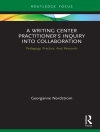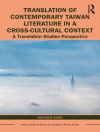Discourses and narratives are crucial in how we understand a world of rapid changes. This textbook constitutes a unique introduction to two major influential theoretical and methodological fields – discourse and narrative methods – and examines them in their interrelation. It offers readers an orientation within the broad and contested area of discourse and narrative methods and develops concrete analytical strategies to those who wish to explore both or one of these fields as well as their overlaps.
Illustrated with examples from real life and real research, this book:
- Maps the theoretical influence from poststructuralist, postmodern, postcolonial and feminist ideas on the field of discourse and narrative.
- Acts as a guide to the most central analytical approaches in discourse and narrative studies supported by concrete examples of analytical strategies.
- Presents a variety of oral, textual, visual and other ’data’ for the purpose of analyzing discourse and narrative.
- Offers deeper insight into discourse and narrative methods within three themes of crucial importance for changing global context: media and society, gender and space, and autobiography and life writing.
- Acts as a helpful guide to situated writing based on concrete workshop exercises, which promotes ethical reflexivity, analytical thinking and creative engagement in the study of discourses and narratives.
Tabella dei contenuti
PART I: Introducing Discourse and Narrative Methods
Chapter 1. The Becoming of a Textbook. A Readers Guide
Chapter 2. Theoretical and Methodological Departures in Contested Fields of Study
Chapter 3. Themes: Media and Society, Gender and Space, Autobiography and Life Writing
PART II: Narrative and Discourse: Making Connections
Chapter 4. Narrative Phenomena: Entanglements and Intra-Actions in Narrative Research
Chapter 5. Discourse, Authoring and Performativity
Chapter 6. Narrative Modalities of Power
Chapter 7. Discourse, Power and Representation
Chapter 8. Narrative as force
Chapter 9. Discourses as Embodied Genealogies
Chapter 10. Narrative and the Political
PART III: Situated and Reflective Writing Sessions
Chapter 11. A Politics of Location in Discourse and Narrative Methods
Chapter 12. Working with Diaries and Letters
Chapter 13. Working with Memories
Chapter 14. Untimely Academic Novella Writing
Circa l’autore
Maria Tamboukou (BA, MA, Ph D) is a professor of feminist studies at the University of East London, UK. Her research activity develops in the areas of philosophies and epistemologies in the social sciences, feminist theories, narrative analytics, and archival research. Writing feminist genealogies is the central focus of her work. She is the author of seven monographs and more than 70 journal articles and book chapters. Recent publications include the monographs Sewing, Writing and Fighting; Gendering the Memory of Work; Women Workers’ Education as well as the coauthored the book The Archive Project.












